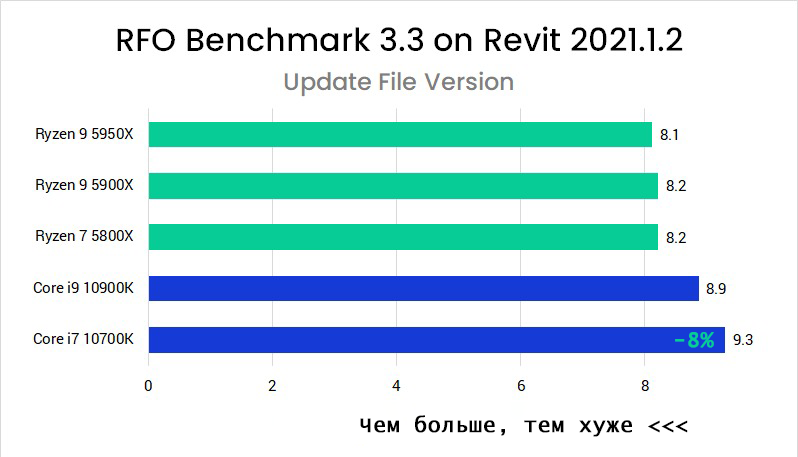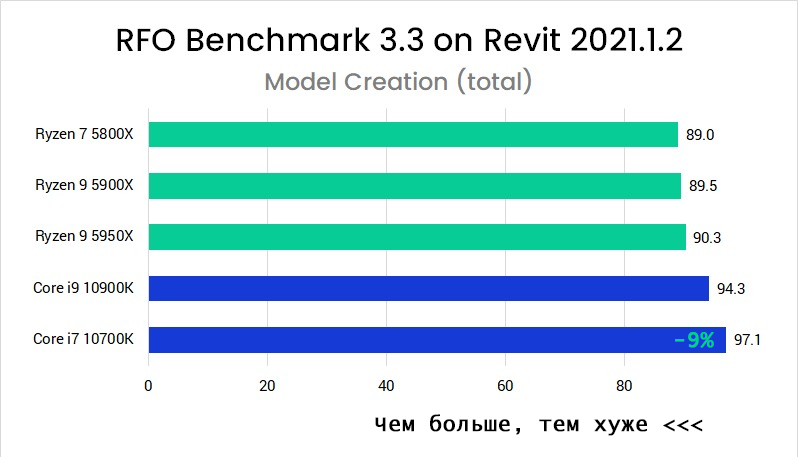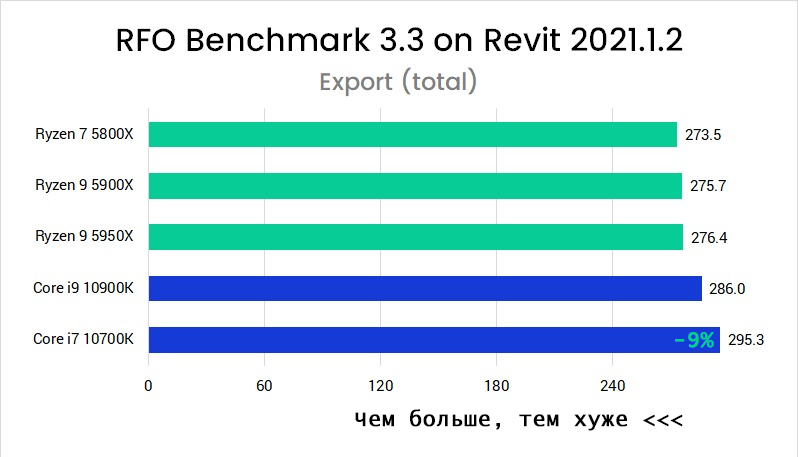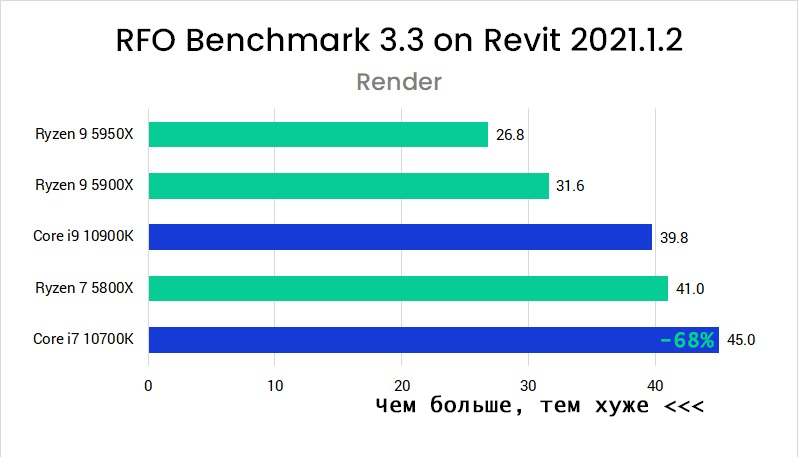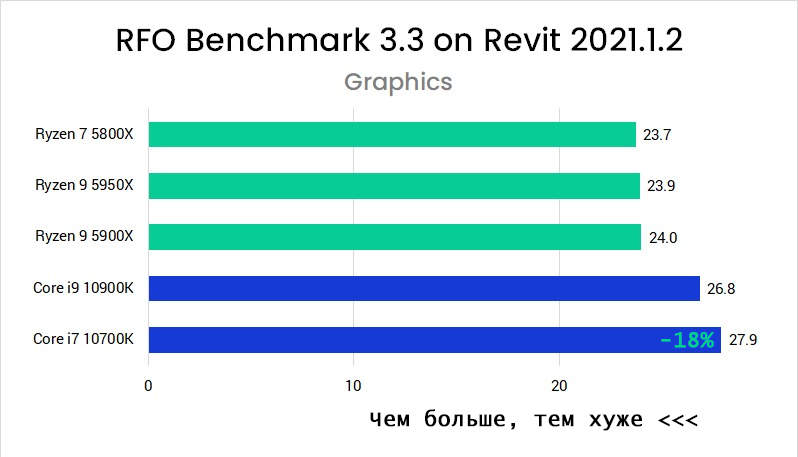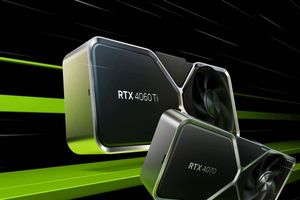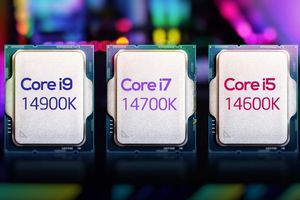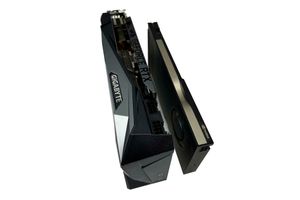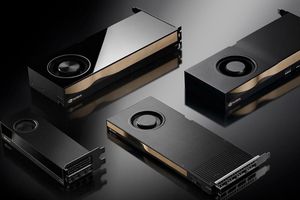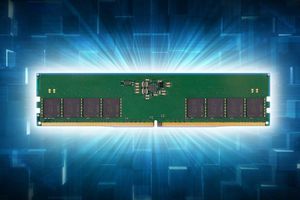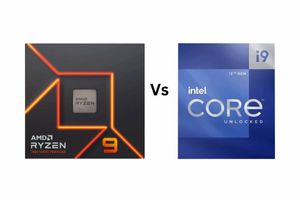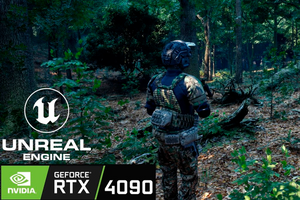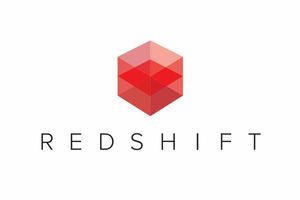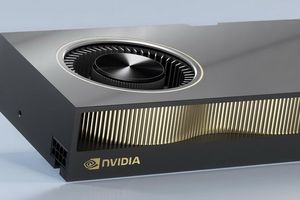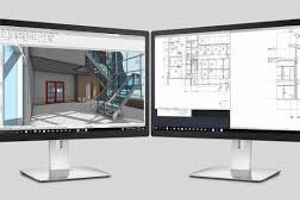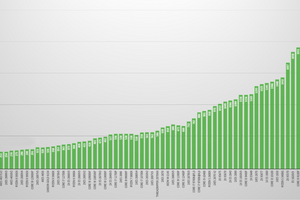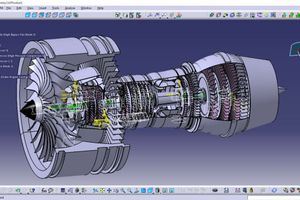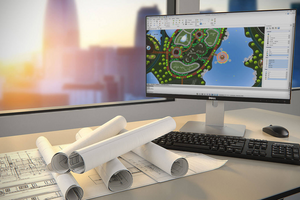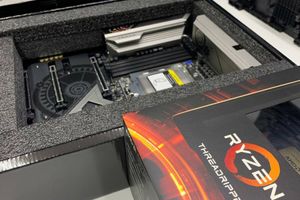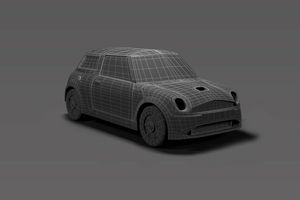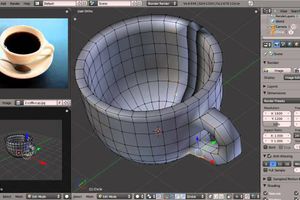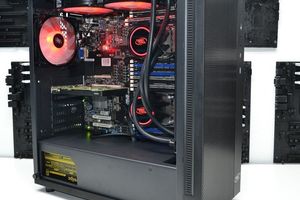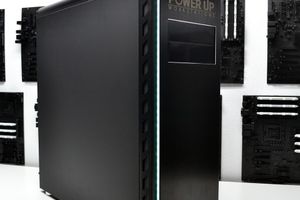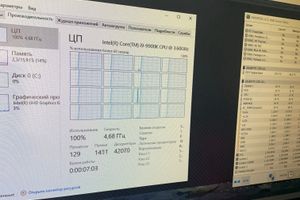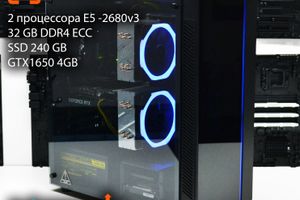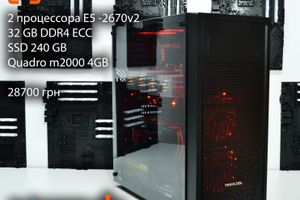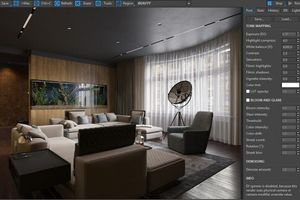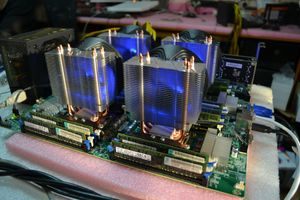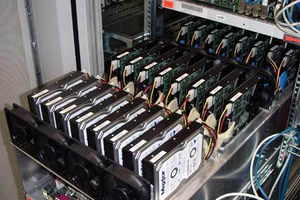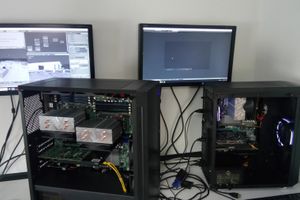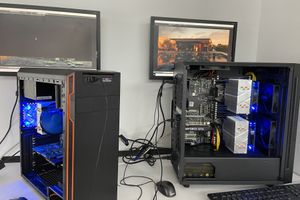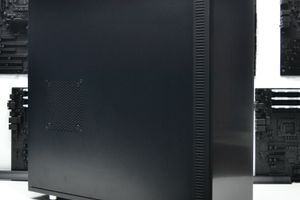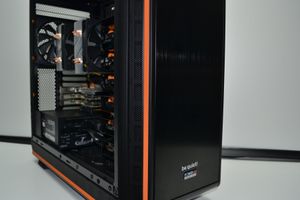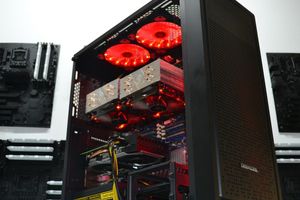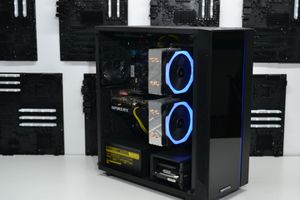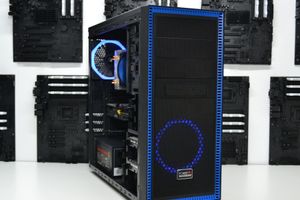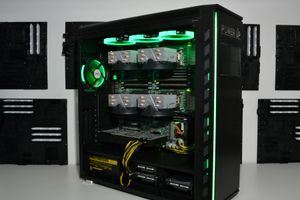AMD Ryzen 5000 series processors are very worthy of showing themselves in the Revit program! These chips are not only impressive in terms of parameters, but also lead the way in terms of performance in all aspects tested by Revit. For example, the 10th generation Intel Core model is sometimes only 5-10% inferior to AMD. This is not a significant difference for those who do not do a lot of rendering. Otherwise, the AMD Ryzen 7 5800X declares phenomenal performance, which is in fact as good as Ryzen 9 models with a large number of cores at a much lower cost. Those who render frequently can consider the 5950X with comparable modeling performance and about 50% faster rendering speeds, or potentially move to the Dual Xeon line with more cores.

The only and very significant drawback of these processors is their absence from the market for several months after their launch in late 2020. We look forward to offering AMD Ryzen processors in our Revit modeling systems as soon as they are available. In the meantime, we're watching the tests and drawing conclusions.
Introduction.
So far, AMD Ryzen 5000 Series processors have proven to deliver high levels of performance across a wide range of applications, and now we have the opportunity to compare their performance to Intel Core processors in Autodesk Revit 2021. For a long time, Intel's single-threaded performance has allowed the company to remain the leader in overall performance while AMD has been abandoned for workloads with a large number of threads, such as rendering and modeling. However, with its latest Ryzen models, AMD has become the leader in instructions per clock cycle and has overtaken Intel in clock speed, so let's see how this affects real-world processing in popular software like BIM.
Test equipment
Below are the detailed specifications of the test platforms we used:
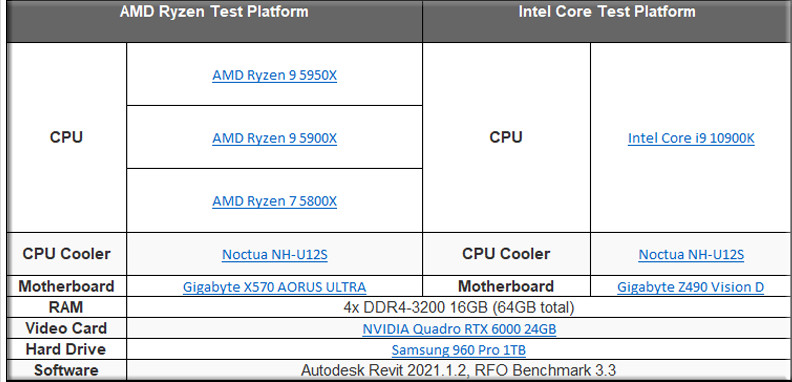
Test information
Since we don't have our own test suite for Revit, we will use the original data for comparative evaluation. At the time of writing, the latest version of the program is 3.3, which in turn supports the latest version of Revit (2021), so we will use it. Since the focus is on CPU performance, we used the “Full_Standard” preset. It runs each part of the test three times and then averages the results.
Results and analysis
Comparative results are presented. In some cases, this is a summary of all the results in this section (e.g., “Exports”) to avoid a large number (more than 20) of individual graphs. These situations are indicated by the word “Total” in the title. AMD Ryzen processor scores are shown in green (weird, right?) and Intel Core processors in blue, and each chart is sorted by performance (fastest at the top):
In the update file test, we can see that the new AMD processors perform very well - about 9% faster than the Intel models.
Model creation is a collection of several short tests related to creating and modifying various aspects of a project in Revit. Again, AMD processors outperformed Intel here, albeit by a smaller margin than in the previous graph.
As with the previous model test, this export score is also a combination of several separate tests: exporting all project views to different file types (PNG, DWF, DWG), and printing these views as both vector and raster images. Once again, AMD Ryzen 5000 Series showed the fastest results.
Since the first three charts cover Revit jobs that are mostly single-threaded and therefore have identical performance, this rendering test makes very efficient use of multiple cores in the processor. This allows the 10-core Intel i9 10900K to outperform AMD's 8-core 5800X, but only slightly, and AMD's chips with more cores far outperform what Intel offers.
Please note that these results only apply to the built-in Revit rendering engine. Therefore, if you use a plug-in such as V-Ray, you will be interested to see other articles for this software.
This last test focuses on graphics performance when viewing models: changing view styles, refreshing, rotating, etc. These tasks can also be greatly affected by the video card and other system characteristics, but it's worth noting here how AMD processors outperform Intel.
So are AMD Ryzen 5000 series processors suitable for Revit?
Certainly, AMD Ryzen 5000 series processors have proven themselves more than worthy in this application! Nevertheless, despite all its advantages and benefits we mentioned above (such as the overall level of performance, 8-9% ahead of Intel in operation, high rendering speeds on multi-core processors in rendering, etc.), the new AMD Ryzen 7 5800X has one significant drawback that can drive the end user towards Intel: its unavailability for the actual order with all the risks for the customer (delivery times and their possible disruptions, after-sales service, etc.) And the price is much higher than Core i7 10700K. Based on the test results and daily practicality, the Power Up team of specialists recommends choosing Intel processors for everyday work and not overpaying for a low level of performance. And the relatively more powerful and unavailable AMD should be left exclusively for rendering, but it should also be compared with 2-processor systems on Xeon processors, which are more similar in price to a 5950x workstation.
Work efficiently with Power Up.
